Item 1 of 1 - Letter written by Jack Mott to his brother Arthur Ernest Percival Mott
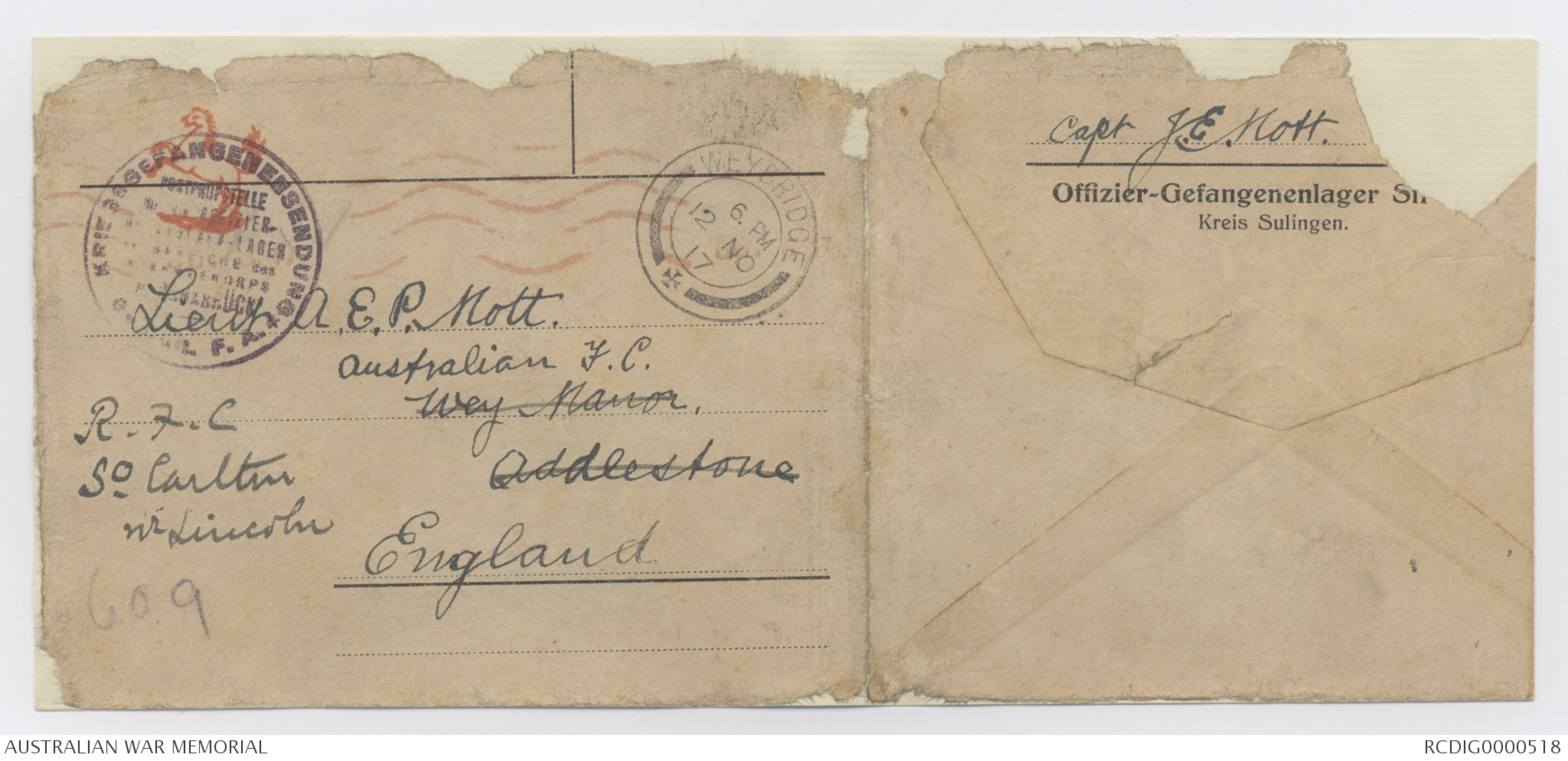
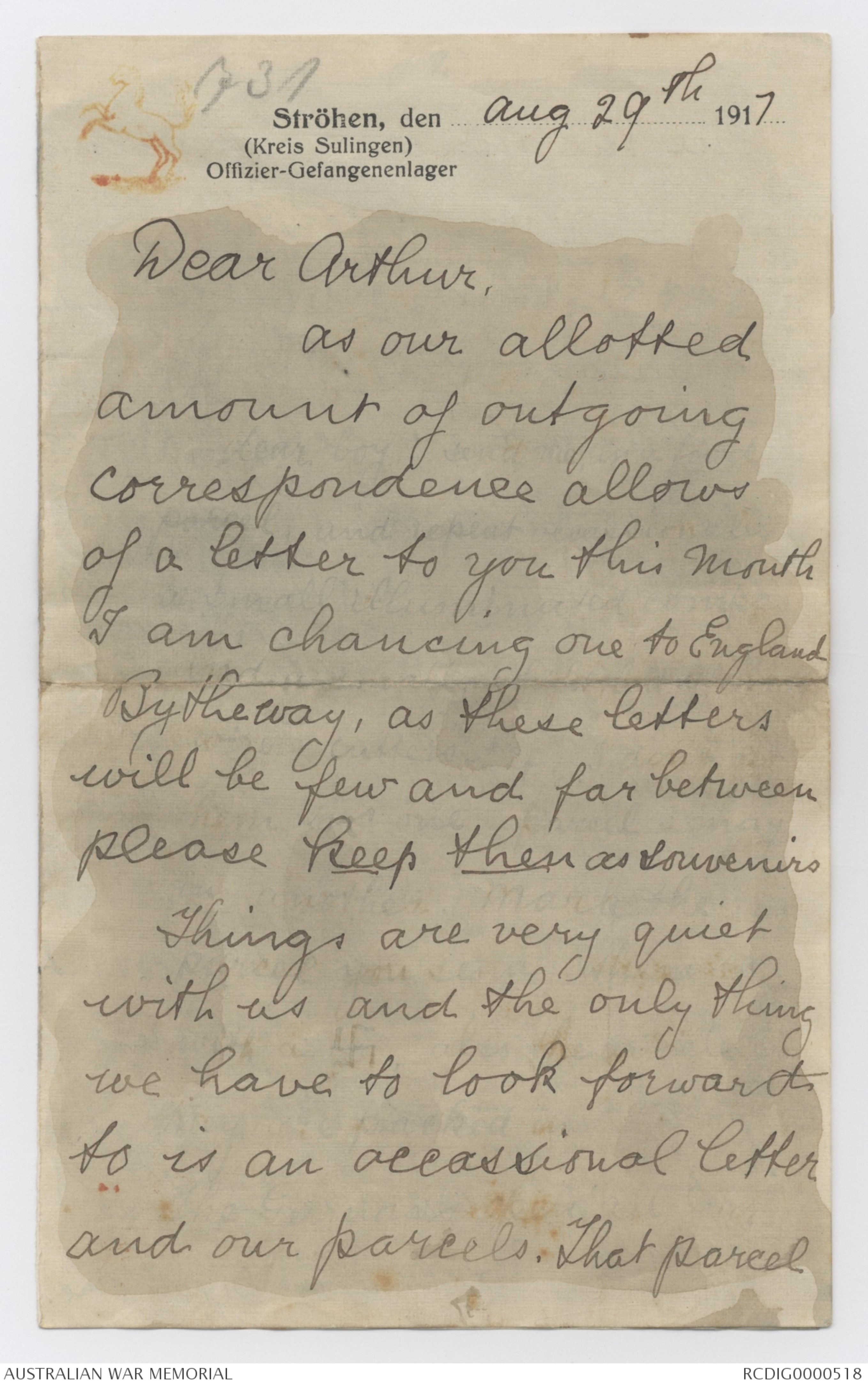
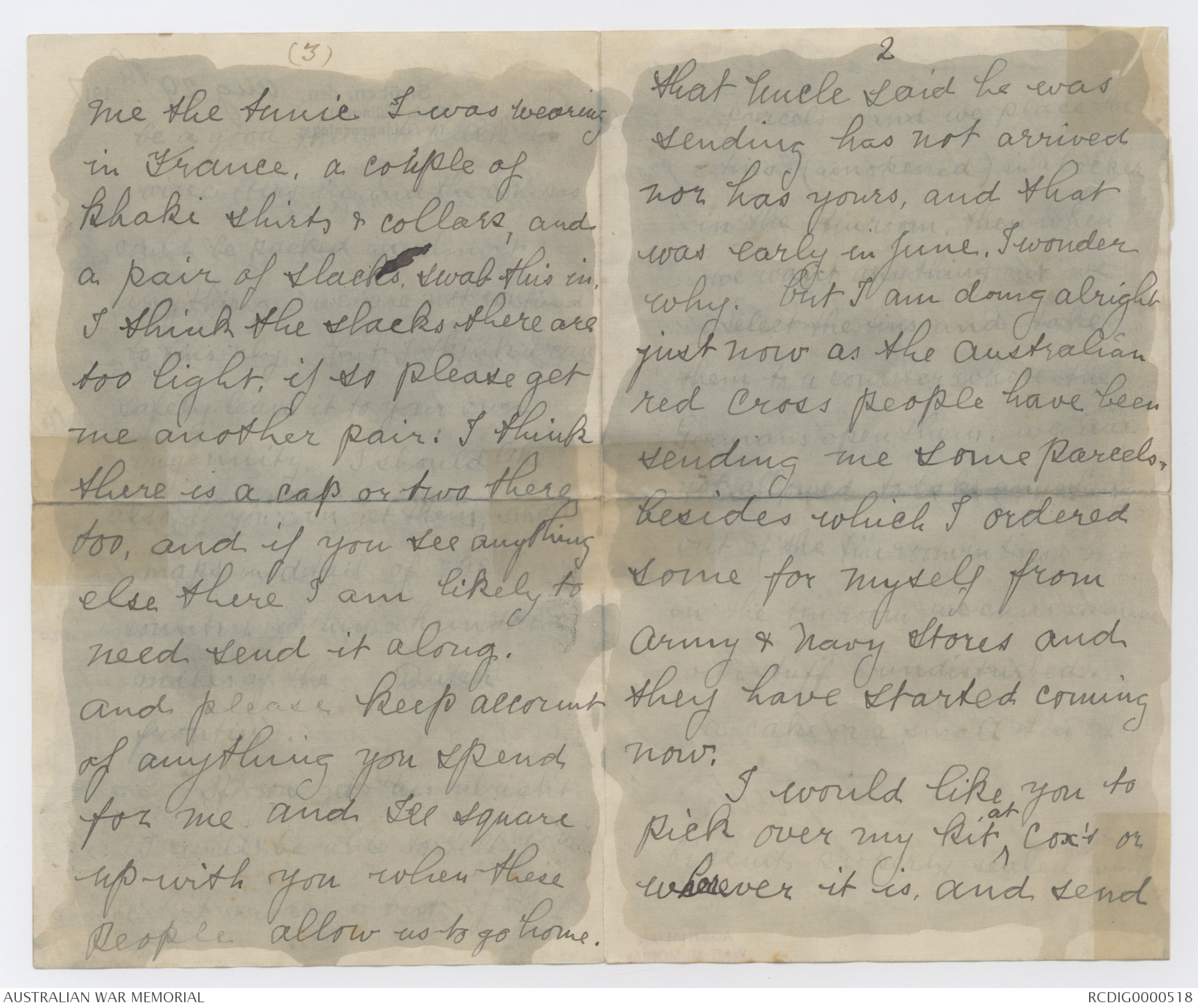
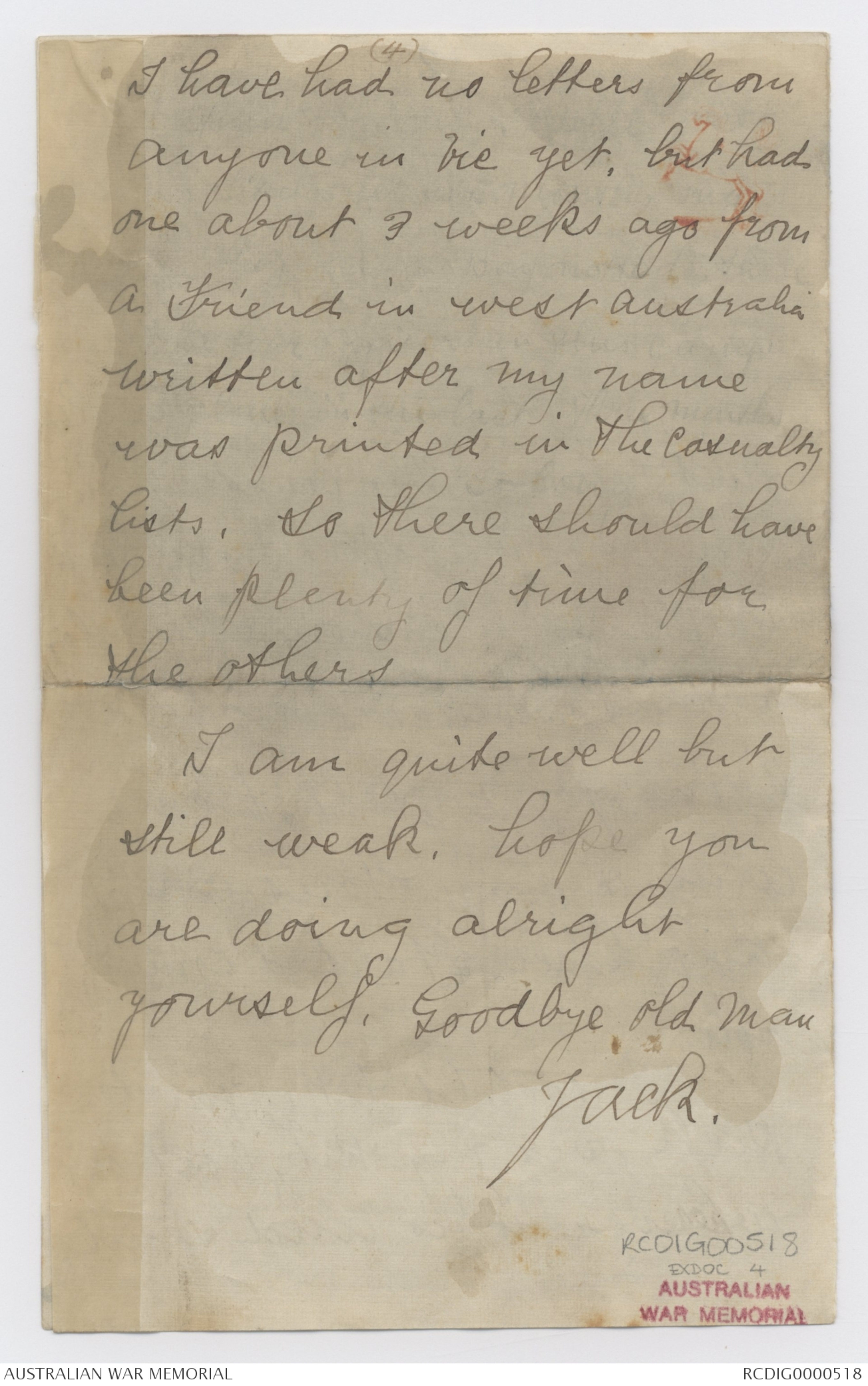
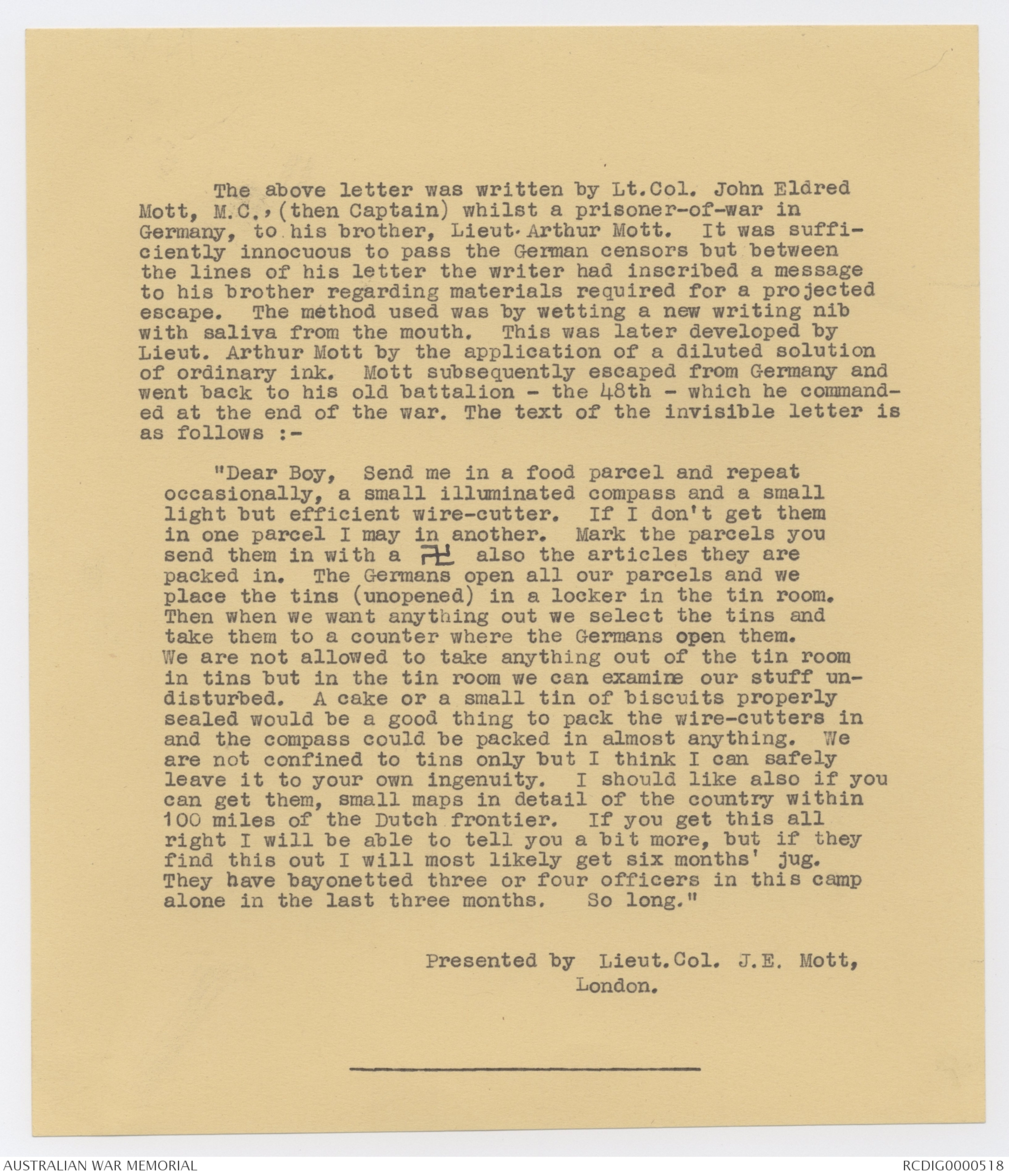
Capt J.E. Mott
Offizier-Gefangenenlager S[[?]]
Kreis Sulingen
Lieut A.E P. Mott.
Australian F.C.
R.F.C Wey Manor
So Carlton Addlestone
Nr Lincoln England
609
[[3?]]
Aug 29th 1917
Strŏhen, den
(Kreis Sulingen)
Offizier-Gefangenenlager
Dear Arthur,
As our allotted
amount of outgoing
correspondence allows
of a letter to you this month
I am chancing one to England.
By the way, as these letters
will be few and far between
please keep them as souvenirs.
Things are very quiet
with us and the only thing
we have to look forward
to is an occassional letter
and our parcels. That parcel
2
that Uncle said he was
sending has not arrived
nor has yours, and that
was early in June. I wonder
why, but I am doing alright
just now as the Australian
Red Cross people have been
sending me some parcels,
besides which I ordered
some for myself from
army & navy stores and
they have started coming
now.
I would like you to
pick over my kit at Cox's or
wherever it is, and send
(3)
me the tunic I was wearing
in France, a couple of
khaki shirts & collars, and
a pair of slacks [[swab?]] this in.
I think the slacks there are
too light, if so please get
me another pair. I think
there is a cap or two there
too, if if you see anything
else there I am likely to
need send it along,
And please keep account
of anything you spend
for me and I'll square
up with you when these
people allow us to go home.
(4)
I have had no letters from
anyone in Vic yet, but had
one about 3 weeks ago from
a friend in west Australia
written after my name
was printed in the casualty
lists. So there should have
been plenty of time for
the others.
I am quite well but
still weak hope you
are doing alright
yourself. Goodbye old man
Jack
RC01G00518
EXDOC 4
AUSTRALIAN
WAR MEMORIAL
The above letter was written by Lt. Col. John Eldred
Mott, M.C., (then Captain) whilst a prisoner-of-war in
Germany, to his brother, Lieut. Arthur Mott. It was suffi-
ciently innocuous to pass the German censors but between
the lines of his letter the writer had inscribed a message
to his brother regarding materials required for a projected
escape. The method used was by wetting a new writing nib
with saliva from the mouth. This was later developed by
Lieut. Arthur Mott by the application of a diluted solution
of ordinary ink. Mott subsequently escaped from Germany and
went back to his old battalion - the 48th - which he command-
ed at the end of the war. The text of the invisible letter is
as follows :-
"Dear Boy, Send me in a food parcel and repeat
occasionally, a small illuminated compass and a small
light but efficient wire-cutter. If I don't get them
in one parcel I may in another. Mark the parcels you
send them in with a 卐 also the articles they are
packed in. The Germans open all our parcels and we
place the tins (unopened) in a locker in the tin room.
Then when we want anything out we select the tins and
take them to a counter where the Germans open them.
We are not allowed to take anything out of the tin room
in tins but in the tin room we can examine our stuff un-
disturbed. A cake or a small tin of biscuits properly
sealed would be a good thing to pack the wire-cutters in
and the compass could be packed in almost anything. We
are not confined to tins only but I think I can safely
leave it to your own ingenuity. I should like also if you
can get them, small maps in detail of the country within
100 miles of the Dutch frontier. If you get this all
right I will be able to tell you a bit more, but if they
find this out I will most likely get six months' jug.
They have bayonetted three or four officers in this camp
alone in the last three months. So long."
Presented by Lieut. Col. J. E. Mott,
London.
 Jacqueline Kennedy
Jacqueline KennedyThis transcription item is now locked to you for editing. To release the lock either Save your changes or Cancel.
This lock will be automatically released after 60 minutes of inactivity.